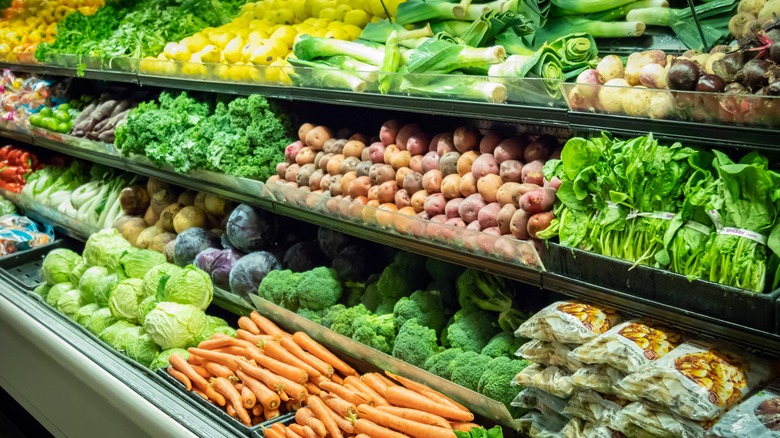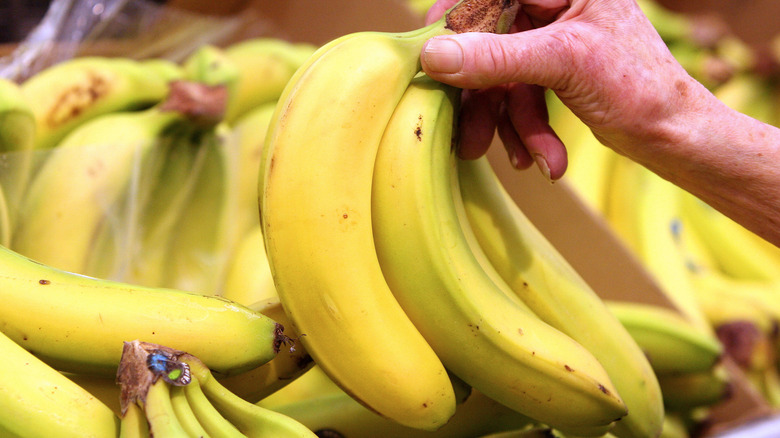The Truth About The No-Label Diet
Whether you want to lose weight or just want to get healthier, trying to find the perfect diet can be very overwhelming. There are so many options out there these days. You can go vegan and cut out all animal-based products or you can go to the other extreme and go carnivore, eating only animal-based products. You can try paleo and eat like our ancestors did or you can do Weight Watchers and track your points meticulously. You can eat low-carb, low-fat, low-sugar, low-calorie — the list goes on and on.
If you have yet to find a diet that works for you, and if none of the above sound very appealing, there's another way of eating that's on the up and up. It's called the no-label diet. Unlike some of the other popular diets, it's surprisingly simple and it's just what the name suggests — you only eat foods without a nutrition label. Here's what you need to know about the no-label diet and why it may be beneficial.
It focuses on single-ingredient foods
Rather than cutting out entire food groups or requiring detailed tracking of numbers like calories, fat grams, or points, the no-label diet instead focuses on the quality of the food you're eating instead of the quantity. Meaning, there's no counting involved. All you have to do is eat foods that don't have a label on them (and that don't come in a box or bag). It makes sense when you think about all of the foods that are label-free — fruit, veggies, nuts, etc. What do they have in common? They're all pretty healthy for you, especially compared to the foods that do have labels, like boxed cereal, chips, and cookies.
It's essentially a way of encouraging people to eat more whole foods, which are full of nutrients and good-for-you antioxidants and compounds. "If more Americans got back to buying single-ingredient food products, we'd be a far healthier country," a columnist for Live Science says.

